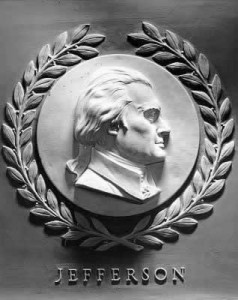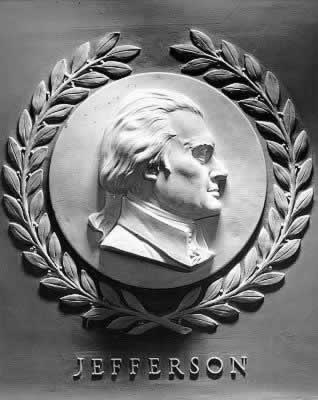Epicureanism Applied 2000 Years Later By Thomas Jefferson: “Everything in this world is a matter of calculation.”
 How do we apply Epicureanism today?
How do we apply Epicureanism today?
Is it a hopeless task to consider whether Epicurus’ clearly stated views apply to us two thousand years later?
Epicurus taught in principles that are timeless — in the words of a fellow fan of Epicurus — in principles that are transtemporal.
Much has changed since 1786, but not as much as changed between 1786 and the time of Epicurus. Yet when Thomas Jefferson wrote the words below, with only a few minor adjustments it was as if he were taking dictation from Epicurus himself.
I am not aware of a better and more practical statement of the calculation of pleasure and pain than that delivered by Jefferson in his letter to Maria Cosway, written from Paris on October 12, 1786:
This is not a world to live at random in as you do. To avoid those eternal distresses to which you are forever exposing us, you must learn to look forward before you take a step which may interest your peace.
Everything in this world is a matter of calculation. Advance then with caution, the balance in your hand. Put into one scale the pleasures which any object may offer; but put fairly into the other the pains which are to follow, and see which preponderates.
The making of an acquaintance is not a matter of indifference. When a new one is proposed to you, view it all round. Consider what advantages it presents, and to what inconveniences it may expose you. Do not bite at the bait of pleasure till you know there is no hook beneath it.
The art of life is the art of avoiding pain: and he is the best pilot who steers clearest of the rocks and shoals with which he is beset. Pleasure is always before us; but misfortune is at our side: while running after that, this arrests us. The most effectual means of being secure against pain is to retire within ourselves, and to suffice for our own happiness.
Those which depend on ourselves are the only pleasures a wise man will count on: for nothing is ours which another may deprive us of. Hence the inestimable value of intellectual pleasures. Ever in our power, always leading us to something new, never cloying, we ride serene and sublime above the concerns of this mortal world, contemplating truth and nature, matter and motion, the laws which bind up their existence, and that eternal being who made and bound them up by those laws. Let this be our employ.
Leave the bustle and tumult of society to those who have not talents to occupy themselves without them.”

